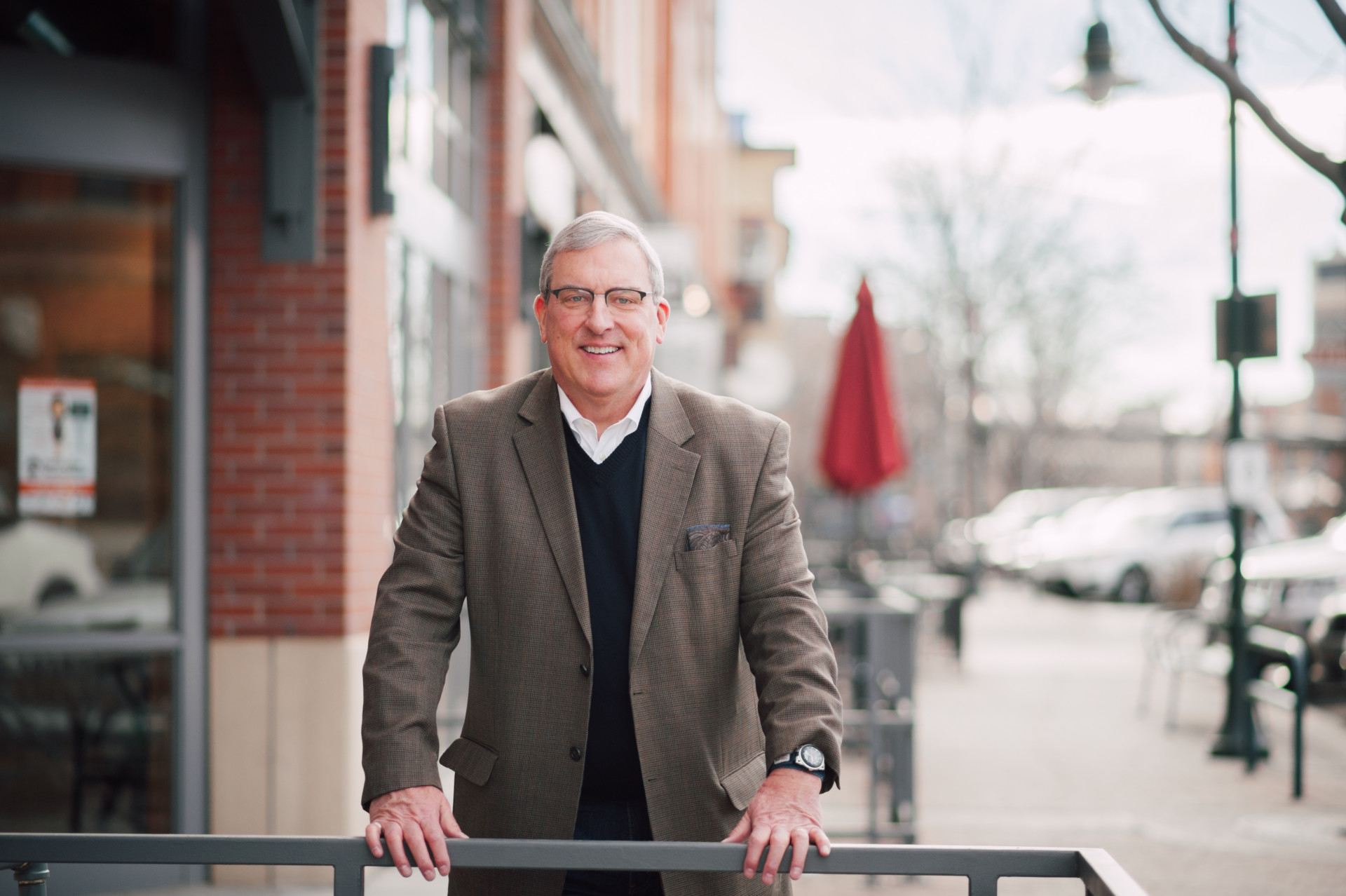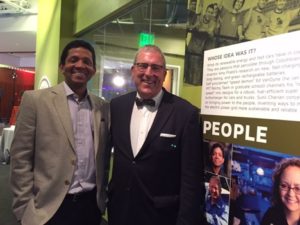Editor’s note: The Provost’s Council for Engagement is made up of a dozen Colorado State University faculty members representing all eight colleges and Morgan Library. Council members serve as champions for advancing the practice and recognition of engaged scholarship as fully embedded within CSU’s core teaching, research and service missions.
We are profiling the members of the council, who will in their own words help showcase the diversity of engaged scholarship across campus, as well as the impact of this work on communities and the university. So far, nine of the council members – Martin Carcasson, Christine Fruhauf, Neil Grigg, Bill Shuster, Robin Reid, Frank Garry, Tracy Nelson, Patty Rettig and Meena Balgopal – have been profiled.

This month we meet Wade O. Troxell, associate professor in the Department of Mechanical Engineering, Walter Scott, Jr. College of Engineering. Troxell is an internationally recognized expert in the areas of intelligent robotics and intelligent control of distributed infrastructure systems. His smart grid research has focused on intelligent systems and the integration of distributed energy resources, including renewable energy and storage, into the electric power grid. Troxell is also serving his second term as the Mayor of Fort Collins. Prior to serving as mayor, he was twice elected to the Fort Collins City Council representing District 4, serving a total of eight years.
What, in your opinion, is “faculty engagement”?
Faculty member engagement is what brings purpose and meaning to the life of an intellectually curious and practically relevant faculty member in any discipline. Teaching and research, or learning and discovery, are devoid of purpose and meaning, if not for faculty being embedded and immersed in engagement outside the academic framework. It is every CSU faculty member’s responsibility, and distinct opportunity, to engage and connect all the capacity at this University to serve and inform every citizen, every business and entrepreneurial entity, and every governmental decision maker in the state of Colorado.
How have you, your program or students benefitted from what you have learned as an engaged faculty member? And, has there been any sort of reciprocity – or two-way learning – with the communities outside of CSU that you have been involved with?
I’m “all in” for the duality of benefits for an engaged faculty member. The benefits are not only available to individual faculty members, but also to their undergraduate and graduate students – in the classroom, laboratory, and beyond campus in tangible and meaningful ways. The research benefits extend beyond one’s own discovery to making real and meaningful contributions to various communities: one’s research community is accountable, the campus community is fulfilled through collaboration, the community in which we live is enhanced, the communities in which we associate (e.g., professional societies) are furthered, and the society at large is made better. As for the reciprocity, the biggest and most profound benefits are the returns on engagement. By giving as an engaged faculty member in an authentic way, much more comes back in return to the individual faculty, department, college and the university.
The true power and reward comes from cross-linking with other disciplines, professions and organizations to leverage and provide force multiplication for impact and change.
Why are you involved with this Council and how does it relate to your work or research?

I am passionate about engagement and its importance to a Carnegie research extensive university, Carnegie community engaged university, and a land-grant institution like Colorado State University.
When I was first elected Mayor of Fort Collins, I wrote a letter as mayor to CSU President Frank suggesting that innovation and prosperity are shared key community values. As a direct result, Dr. Frank and Vice President Lou Swanson pursued a designation in 2016 from the Association of Public and Land-grant Universities, making CSU an Innovation and Economic Prosperity (IEP) University.
My involvement in the Provost’s Council for Engagement is a small part of the possibilities and an important next step in building engaged teaching and scholarship as a first-class element here at CSU. The Council was formed in direct response to campus and community feedback encouraging better support and recognition for faculty involvement in teaching and research collaborations with industry and communities. We have made progress, and we still have a way to go.
What do you hope the Council is able to accomplish?
I believe that deep engagement is a differentiator to creating enduring value and impact for great universities. My vision is that CSU becomes a world-class institution with the best faculty, students and staff that transforms learning and discovery through engaged scholarship. This scholarship makes important contributions to the quality of life in the various communities CSU serves, increasing the university’s impact and relevance in Colorado and beyond. The benefit is as a force multiplier for impact and change through our students and research.
Any other thoughts on the Provost’s Council on Engagement?
First, I want to thank all the members of the Provost’s Council for Engagement. They share my passion and commitment to engaged scholarship that will transform this university. Next, I want to thank my faculty colleagues and friends across campus that commit their careers and work tirelessly in bringing engagement to the learning of their students and the discovery in their laboratories. And finally, I want to thank CSU leadership that have supported, encouraged and provided resources to make the IEP a reality. Now let’s get on to realize the vision.